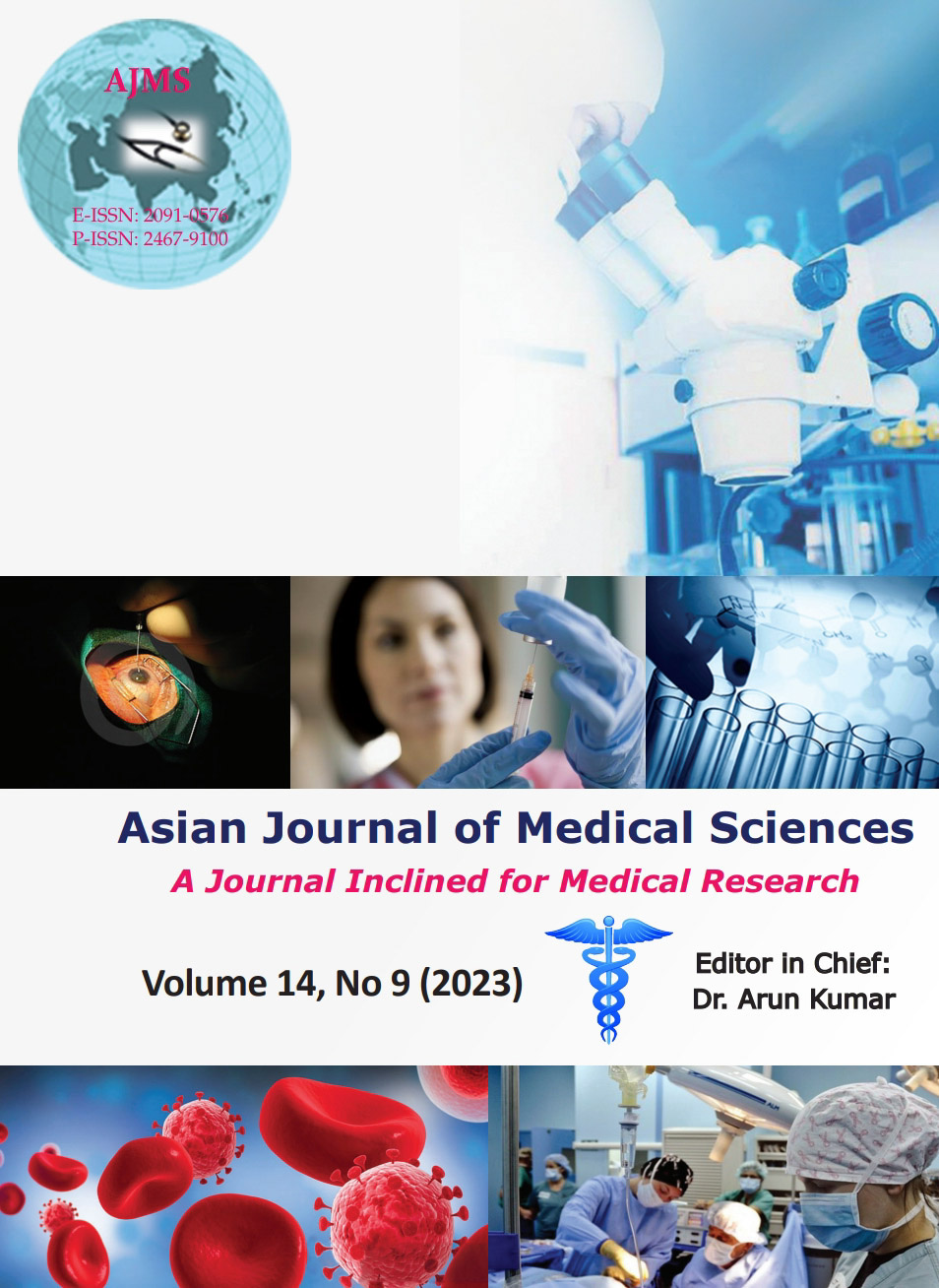Evaluation of antiarthritic activity of ethanolic extract of Derris brevipes (benth.) Baker leaves
Keywords:
Musculoskeletal and joint diseases; Arthritis; Rheumatoid arthritis; Collagen induced arthritisAbstract
Background: Derris brevipes is a common medicinal plant used in the traditional system of medicine as an anti-arthritic agent.
Aims and Objectives: The present study was to evaluate the anti-arthritic activity of ethanolic extract of D. brevipes (EEDB) leaves, belonging to the family Leguminosae.
Materials and Methods: The dried leaves were collected and extracted using 95% ethanol, and the extract was subjected to a preliminary phytochemical screening. In vivo activities were evaluated in collagen (chicken sternal collagen)-induced arthritis (CIA) in Sprague–Dawley rats. Prednisolone was used as the standard, and EEDB (at doses of 300 mg/kg and 600 mg/kg) was administered through the oral route. Body weight measurement, arthritic score, histological score, and radiology score assessments were carried out.
Results: Preliminary phytochemical screening of leaf extract from D. brevipes showed the presence of components such as steroids, triterpenoids, and flavonoids. In vivo tests on CIA rats given the extract showed that it could lower the arthritic score, the paw volume, the radiological score, and the histological score.
Conclusion: From this study, it is concluded that the D. brevipes leaf extract possesses antiarthritic activity.
Downloads
Downloads
Published
How to Cite
Issue
Section
License
Copyright (c) 2023 Asian Journal of Medical Sciences

This work is licensed under a Creative Commons Attribution-NonCommercial 4.0 International License.
Authors who publish with this journal agree to the following terms:
- The journal holds copyright and publishes the work under a Creative Commons CC-BY-NC license that permits use, distribution and reprduction in any medium, provided the original work is properly cited and is not used for commercial purposes. The journal should be recognised as the original publisher of this work.
- Authors are able to enter into separate, additional contractual arrangements for the non-exclusive distribution of the journal's published version of the work (e.g., post it to an institutional repository or publish it in a book), with an acknowledgement of its initial publication in this journal.
- Authors are permitted and encouraged to post their work online (e.g., in institutional repositories or on their website) prior to and during the submission process, as it can lead to productive exchanges, as well as earlier and greater citation of published work (See The Effect of Open Access).




